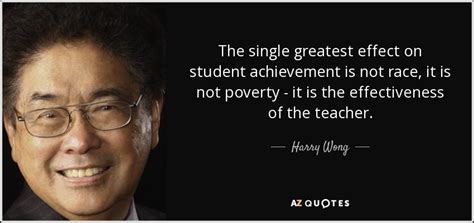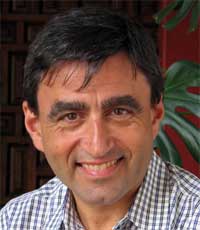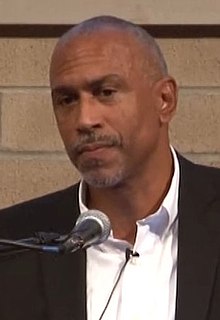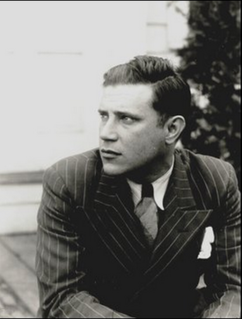A Quote by Neale Donald Walsch
All learning is remembering. A good teacher causes students to remember what they already know.
Quote Topics
Related Quotes
As a teacher with over thirty years of experience, I've found that students are hungry for material that goes beyond simply learning tune after tune. In fact, my students suggested a good portion of the material presented here. This lesson should be an indispensable aid to the aspiring bluegrass banjoist.
We know that African American students tend to be relational learners. It's about the relationships between a teacher and student. Students respond well to teachers they know, believe in them, care about them, but also who teach in a matter that elicits a more active approach to learning, rather than just sitting and listening. The research on this is strong and has been available for a long time, but it is not widely practiced. That's a huge obstacle.
Differentiated Instruction is a teaching philosophy based on the premise that teachers should adapt instruction to student differences. Rather than marching students through the curriculum lockstep, teachers should modify their instruction to meet students' varying readiness levels, learning preferences, and interests. Therefore, the teacher proactively plans a variety of ways to 'get it' and express learning.
If I'd loved my chemistry teacher and my maths teacher, goodness knows what direction my life might have gone in. I remember there was a primary school teacher who really woke me up to the joys of school for about one year when I was ten. He made me interested in things I would otherwise not have been interested in - because he was a brilliant teacher. He was instrumental in making me think learning was quite exciting.
What is wrong with encouraging students to put "how well they're doing" ahead of "what they're doing." An impressive and growing body of research suggests that this emphasis (1) undermines students' interest in learning, (2) makes failure seem overwhelming, (3) leads students to avoid challenging themselves, (4) reduces the quality of learning, and (5) invites students to think about how smart they are instead of how hard they tried.


































